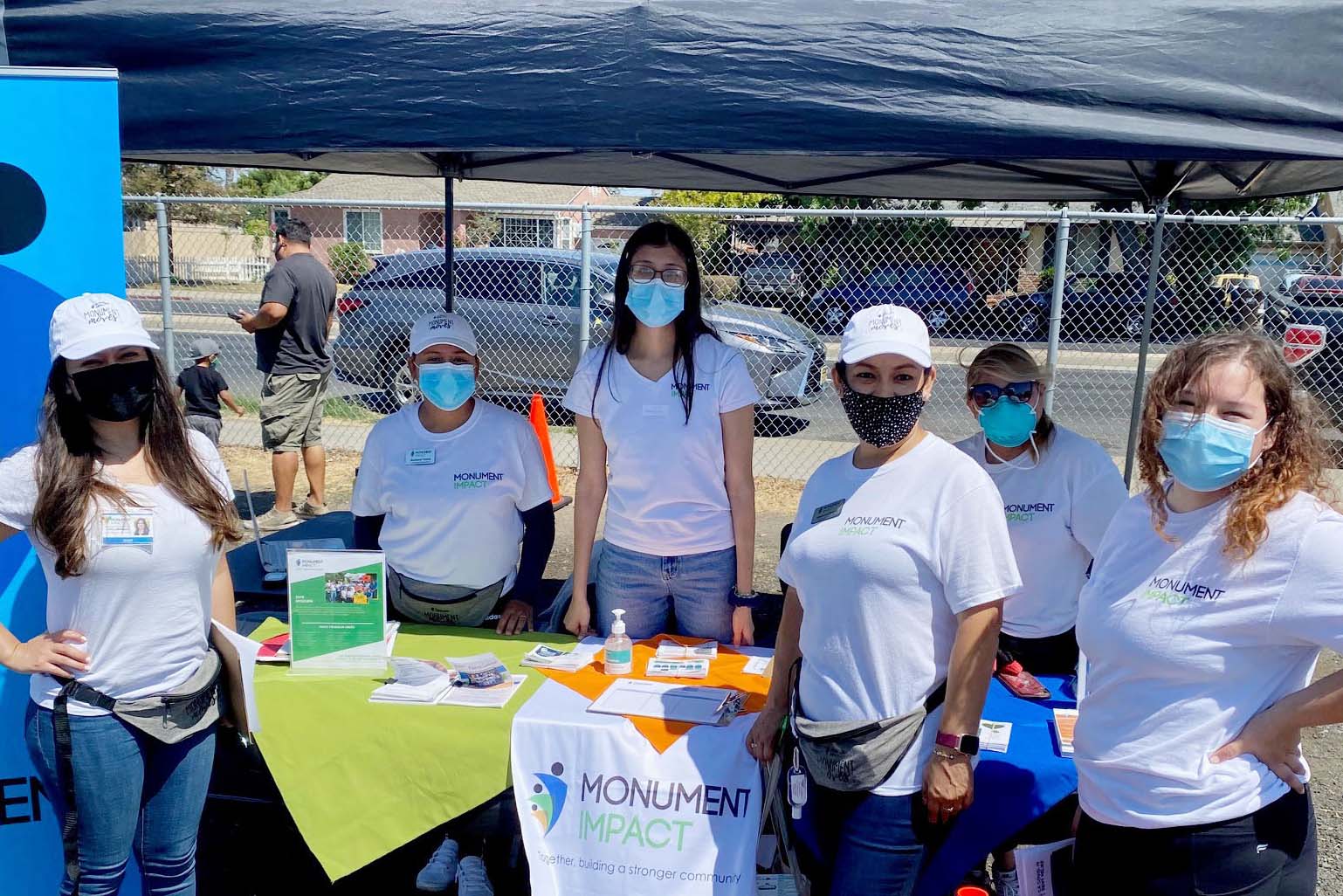On August 19, East Bay Community Foundation hosted A Just East Bay: From Response to Transformation, a virtual town hall event where three leaders of community organizations working directly with Black, Indigenous, and people of color (BIPOC) communities shared powerful insights from the frontlines of the ongoing COVID-19 pandemic.
Shaketa Redden of Causa Justa :: Just Cause, Debra Ballinger of Monument Impact, and Kimberly Aceves-Iñiguez of the RYSE Center, each shared what they have experienced as service providers during the pandemic, and the challenges they continue to face 18 months in.
Shifting Gears: Pivoting To Respond To Old And New Crises
Like many, these three community-based organizations pivoted their work from services and advocacy to provide extensive mutual aid support for many of their community members who were already struggling pre-pandemic.
They organized extensive, awareness campaigns, enabled online connectivity for several families who had poor or no access to the Internet, and importantly, continued their campaign advocacy on housing rights, fighting evictions and displacement.
Causa Justa: Just Cause’s interim Executive Director, Shaketa Redden, shared, “Our work during the pandemic reinforced our North Star: community rights, community control, and community ownership. What we call Community Futures. We know that housing is a human right; it’s also a public safety issue. We’re organizing for long-term sustainable change and liberation while simultaneously meeting peoples’ direct needs.”
Resource Mobilization By And For The Community
Similarly, Monument Impact also quickly pivoted during the pandemic to move all their programming online, including mental health support as pre-existing socio-economic crises were further compounded by the shelter-in-place. Executive Director Debra Ballinger shared how many of their community members — who are day laborers, domestic workers, and restaurant workers ‐ lost their jobs or faced severe pay cuts. Many members had to deal with their children at home doing online schooling with little or no resources to go online. The shelter-in-place aggravated economic devastation for many of their members. They had to act, and act quickly.
As COVID-19 cases soared, Monument Impact supported many of their community members with quarantine, promoted vaccine awareness to more than 20,000 residents of Contra Costa County.
To further address the devolving resource crisis, Ballinger organized a fundraising campaign, seeded with a grant from EBCF’s COVID-19: A Just East Bay Response Fund which morphed into a $2 million fund that has provided direct assistance to over 3,200 undocumented families in the last year.
But relief response is just the beginning, noted Ballinger: “While many immediate needs triggered by the pandemic have been met, the struggle is far from over. A just recovery, in the long run, implies prioritizing building equity and enabling workers and communities to increase their long-term economic stability and mobility, to create long-term resilience for the evolving pandemic and other future crises.”
Centering Young Leadership: Envisioning A Truly Egalitarian Future
For RYSE Center, the principle of centering the voices and leadership of BIPOC young people, queer young people, unhoused young people, and young immigrants was always at the heart of their work, especially more so with the pandemic. Over the years, RYSE has trained hundreds of young people in Richmond, by centering power and building relationships. “We believe in modeling community self-empowerment through a transformative platform for the most marginalized. Our work continues to be liberation-focused and values-aligned,” noted RYSE Co-Founder and Executive Director Kimberly Aceves-Iñiguez.
With the onset of the pandemic, RYSE saw it as instrumental to shift the enormous heavy lifting that has always been done by grassroots organizations to a more equitable, sustainable process in the long run. With timely and flexible support from EBCF, RYSE built an infrastructure to be able to distribute resources to over 400 youth and their families through their Youth Rapid Response Fund. There was an explosive need for mental health support and resources, and they continued to work towards meeting this unmet need among their youth.
The pandemic exposed the stark digital divide that required all three organizations supporting BIPOC youth and their communities with Internet access, tablets, iPads, and laptops so they could access online learning; as well as many services and jobs that have since moved online.
EBCF’s Virtual Town Hall, as well as the stories these community leaders shared, shined a light on the importance of strong relationships and transformation. By focusing on liberation and prioritizing healing, we can build long-term resilience for all our communities to not just survive but truly thrive.
For more about EBCF’s COVID-19 Response and the ongoing work of the Just East Bay Fund, visit the Just East Bay Fund page.
